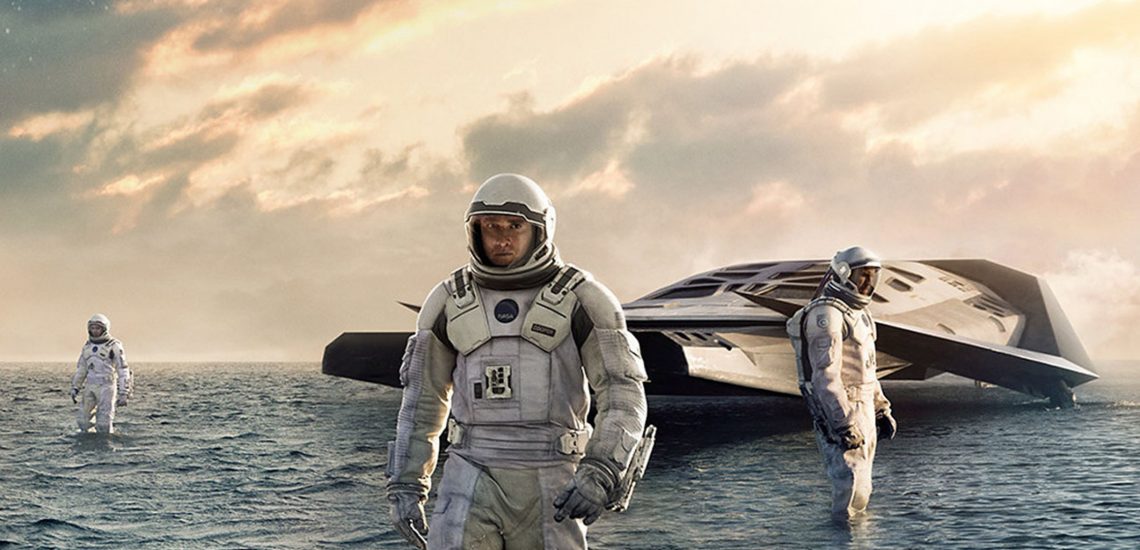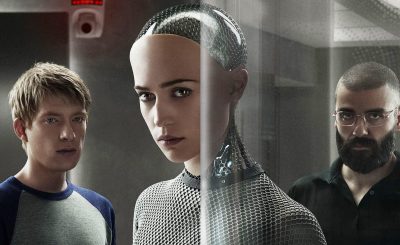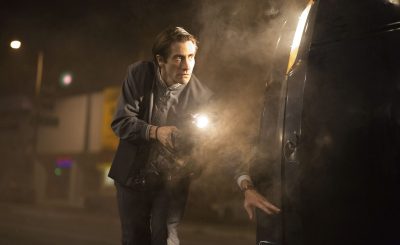With our planet descending into an inhabitable wasteland, fraught with dust storms and quickly draining life resources, humanity’s prospects look bleak. Food is scarce and the need for agriculture takes priority, forcing humanity’s greatest minds into a life of farming. Former NASA test pilot Cooper (Matthew McConaughey) is one such case, raising his two young children on an isolated corn farm, rooted in one location despite a life-long obsession with exploration. “We used to look up at the sky and wonder about our place in the stars. Now we just look down and worry about our place in the dirt”, Cooper surmises.
When a gravitational anomaly – believed by Cooper’s young daughter Murphy to be a ghost – appears to dictate a series of coordinates, Cooper is led to the secret location of what remains of NASA. Helmed by astrophysics Professor Brand (Michael Caine), this now small band of scientists inform Cooper of a long-standing mission to discover another habitable planet for humanity to rebuild upon. Underlining the inevitability of Earth’s decline, Brand persuades Cooper to follow-up on the expeditions of twelve manned capsules sent through a wormhole to analyse potential options, three of which have shown promising signs. Destroyed by her father’s decision to agree to the mission, Murphy and Cooper depart on bad terms, Cooper seemingly sacrificing his relationship with her to attempt to forge a future for the species.
As complex and multi-layered as the Christopher Nolan trademark dictates, Interstellar’s narrative scales some predictably heady heights. Nolan’s detractors frequently point to struggles with expositional dialogue, and to a certain degree Interstellar is guilty of that, stuffed to the brim with a combination of science lessons and those vague, philosophical lines that trailer editors love so much. Yet, whilst it is true with Nolan that the aspects of concept and explanation frequently overshadow character, this is less a criticism and more an observation of the director’s distinguished approach to the experience of cinema. The concept, to a certain degree, is the character, unfolding and developing over the film’s runtime similar to any traditional character arc.
To return to the word ‘experience’, Interstellar is just that. The beauty of a trip to the cinema is being enamoured with the sounds, the visuals, and the ideas that develop in a setting far removed from the familiarities of the real world. For the last 45 minutes in particular, the film has the audience engulfed in true immersion with its gorgeously crafted imagery and its fantastic sound design, proof that even in an age where anything is possible in films there are still directors out there that know how to widen both our eyes and our jaws. Leaving the theatre with a surge of adrenaline is rare, but most definitely present by the time this film’s credits roll.
With its visual splendour and high-concept but rewarding complexities, Interstellar stands shoulder-to-shoulder with Nolan’s finest. Intricately intercutting between the silent isolation of space, and the Hans Zimmer-laced growl of Nolan-crafted action, the film grabs an audience’s obsession with space blockbusters and takes it up a notch, culminating in a hugely satisfying conclusion. Though McConaughey et al. will draw little in the way of individual praise for their performances or characters, the human element of Interstellar takes a justifiable backseat to a wonderfully-presented premise that above all else, makes the two-and-a-half hours of cinema time thoroughly engaging and memorable.
8/10






Leave A Reply